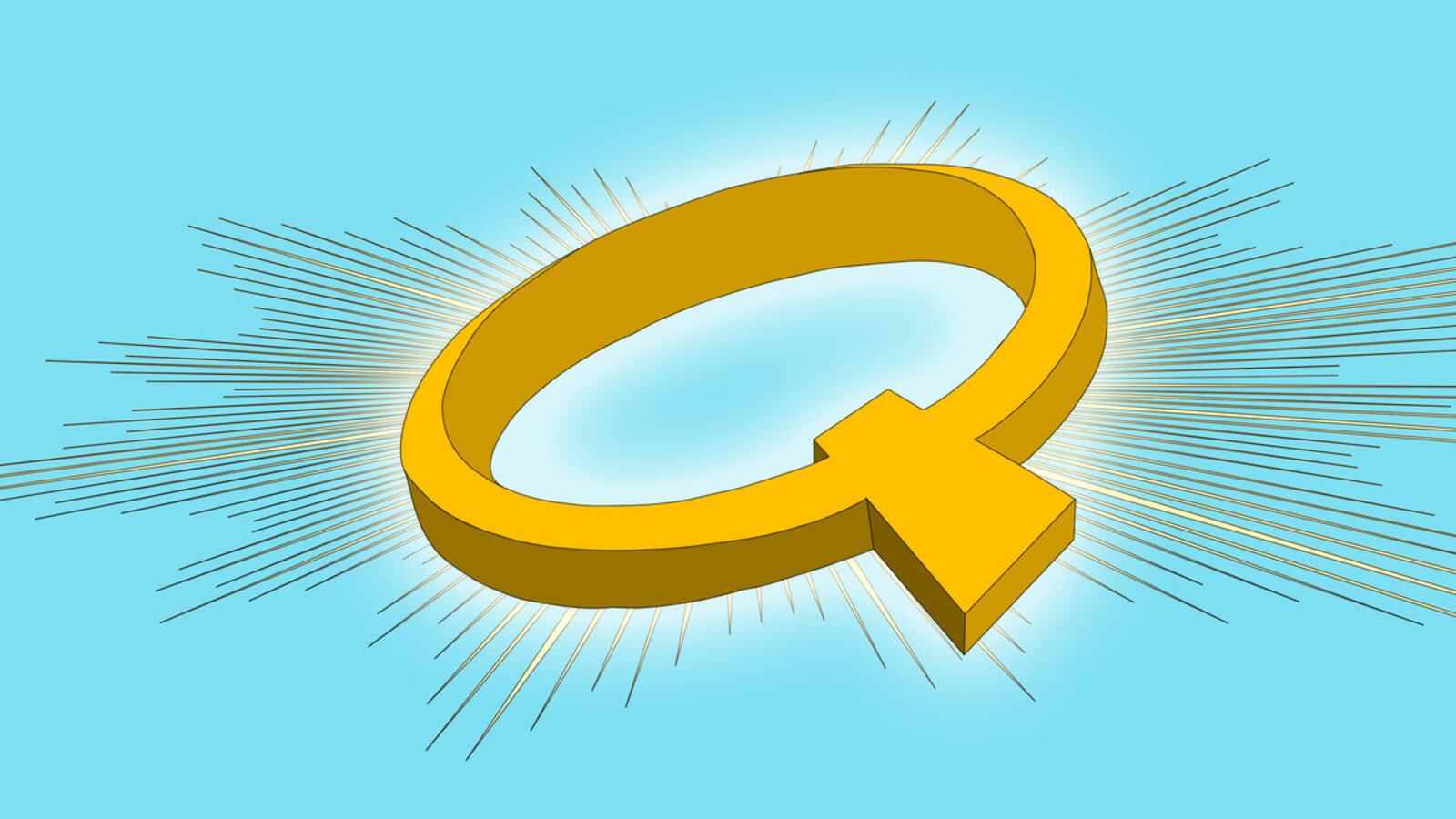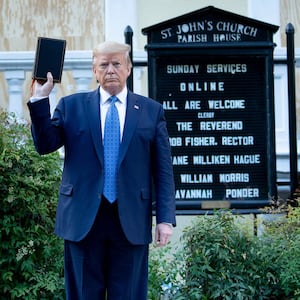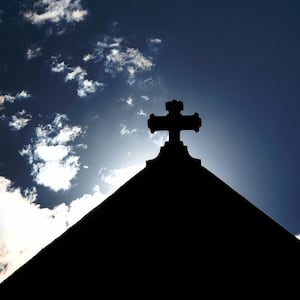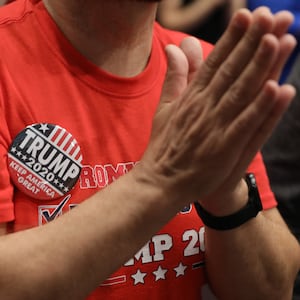Pro-Trump attorney L. Lin Wood would like you to open your hymnals to the first book of COVID, Chapter Q(Anon), verse 2 (Conspiracy Prophets).
Wood raised eyebrows recently at the Health and Freedom (as in “COVID denialism”) Conference in Oklahoma, when his appearance picked up some attention for its stream of unfiltered crazy as he raved about how the Clintons, the Obamas, the Bidens, and the Bushes are all supposedly involved in sex trafficking, while insisting that Donald Trump is still the president.
But I was most struck by how the speech, held at Rhema Bible College, almost exactly mirrored a revivalist sermon.
“Every lie will be revealed. They are killing our children; send them to jail. Put them in front of the firing squad. They are committing acts against humanity. The penalty for an act against humanity is death. Take them out,” he said. In another section of the speech, Wood declared: “He [God] is going to rebirth you into the spirit world, and create exactly the person that he intended you to be,” before adding, “There’s your Q.” He then appeared to draw the “Q” symbol for QAnon with his index finger.
As the Christian conservative writer David French told me, “one reason why Q has taken hold in parts of the church” is that it “mimics revivalist/prophetic style/content.”
Indeed, there is plenty of evidence that this mimicry is working. “The name of God was everywhere during [the Jan. 6] insurrection against the American government,” according to the Atlantic’s Emma Green. “The mob carried signs and [a] flag declaring JESUS SAVES!... Some were participants in the Jericho March, a gathering of Christians to ‘pray, march, fast, and rally for election integrity.’”
But this trend long-predates Jan. 6, going back to at least 2016, when Edgar Maddison Welch, who describes himself as a deeply-religious Christian, took an AR-15 into the Comet Ping Pong pizzeria in Washington, D.C., to break up a nonexistent Satanic child sex-abuse ring. But trying to stop the (imagined) abuse of children is not the only reason evangelical Christians are being lured into QAnon.
My familiarity with this type of evangelical content leads me to believe that people immersed in a televangelist version of faith might be especially susceptible to this MAGA/Q seduction.
Churches that lack a rigid denominational hierarchy are more susceptible, since they are not held accountable by any sort of sanctioning authority. With attendance declining nationally, they are increasingly competing for a dwindling number of congregants (or viewers/donors), which tends to incentivize more emotional or salacious content.
There’s also a theological reason. The more charismatic Christian preachers stress that “we walk by faith, not sight,” as well as the spiritual gift of prophecy. These are all orthodox Christian teachings, but you can see how false teachers might appropriate the concepts of divine revelation and blind faith in Jesus and redirect them toward conspiracy theories and cult-like behavior. As Ed Stetzer, an evangelical pastor and executive director of the Wheaton College Billy Graham Center, told FiveThirtyEight last month, “QAnon is a train that runs on the tracks that religion has already put in place.”
To avoid this fate, Christians are told to “test the spirits to see whether they are from God, for many false prophets have gone out into the world,” but this warning has gone unheeded by many. Indeed, QAnon’s predictions resemble (unfulfilled) prophecies.
Even those of us who believe in miracles would concede that charlatans exist and often prey on vulnerable people. Someone who is desperate for physical healing or money to pay the mortgage might be easily exploited. As politics play a more central role in our lives, our vulnerabilities have shifted. Many Americans were so utterly desperate for Trump to be re-elected that they were willing to believe anything. And so they did.
The truth is, the connection between white conservative evangelicals and conspiracy theories goes back at least a century, through the Scopes Trial and into 1950s anti-communism. When I was a kid in the 1970s and ’80s, there was talk about Henry Kissinger or Mikhail Gorbachev being the Antichrist (as Christian writer Joe Carter explained, “the strange birthmark was considered an obvious sign that Gorbachev wore the ‘mark of the beast’”).
But the rise of new media, coupled with the dismissal of mainstream media (“fake news”) as a countervailing force, has taken things to a new and dangerous level (according to a 2019 Pew survey, only “about a quarter of white evangelicals (26 percent) say journalists have high or very high ethical standards,” which is “between 13 and 26 percentage points lower than Protestants overall, Catholics and the unaffiliated”).
“The fundamentalist suspicion of science and higher education in the early 20th century set the movement on a path toward isolation from empirically based information,” Daniel K. Williams, author of The Politics of the Cross tells me, “and now we’re seeing some of the fruits of that phenomenon to a greater degree because of the increasing ability that Americans (including conservative evangelicals) have to control their sources of information and rely exclusively on the views of people who share their assumptions.”
At the end of the day, QAnon is just the latest false religion—but it’s an especially virulent and destructive one. It mimics some of the elements of Christianity, but in the end, it’s just a cheap counterfeit. “Beware of false prophets,” the Scriptures warn, “which come to you in sheep’s clothing, but inwardly they are ravening wolves.”
Sometimes those wolves wear MAGA hats.








